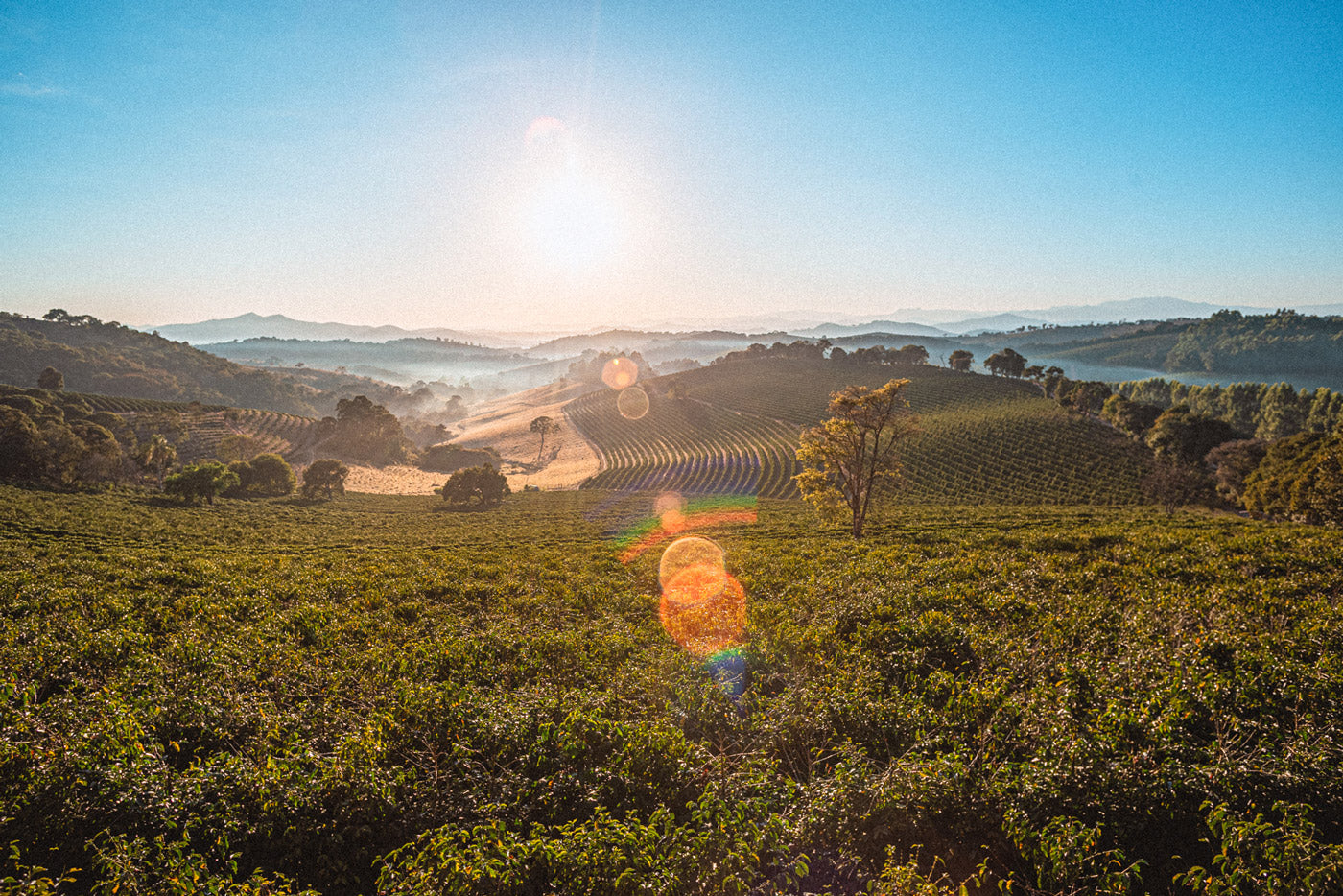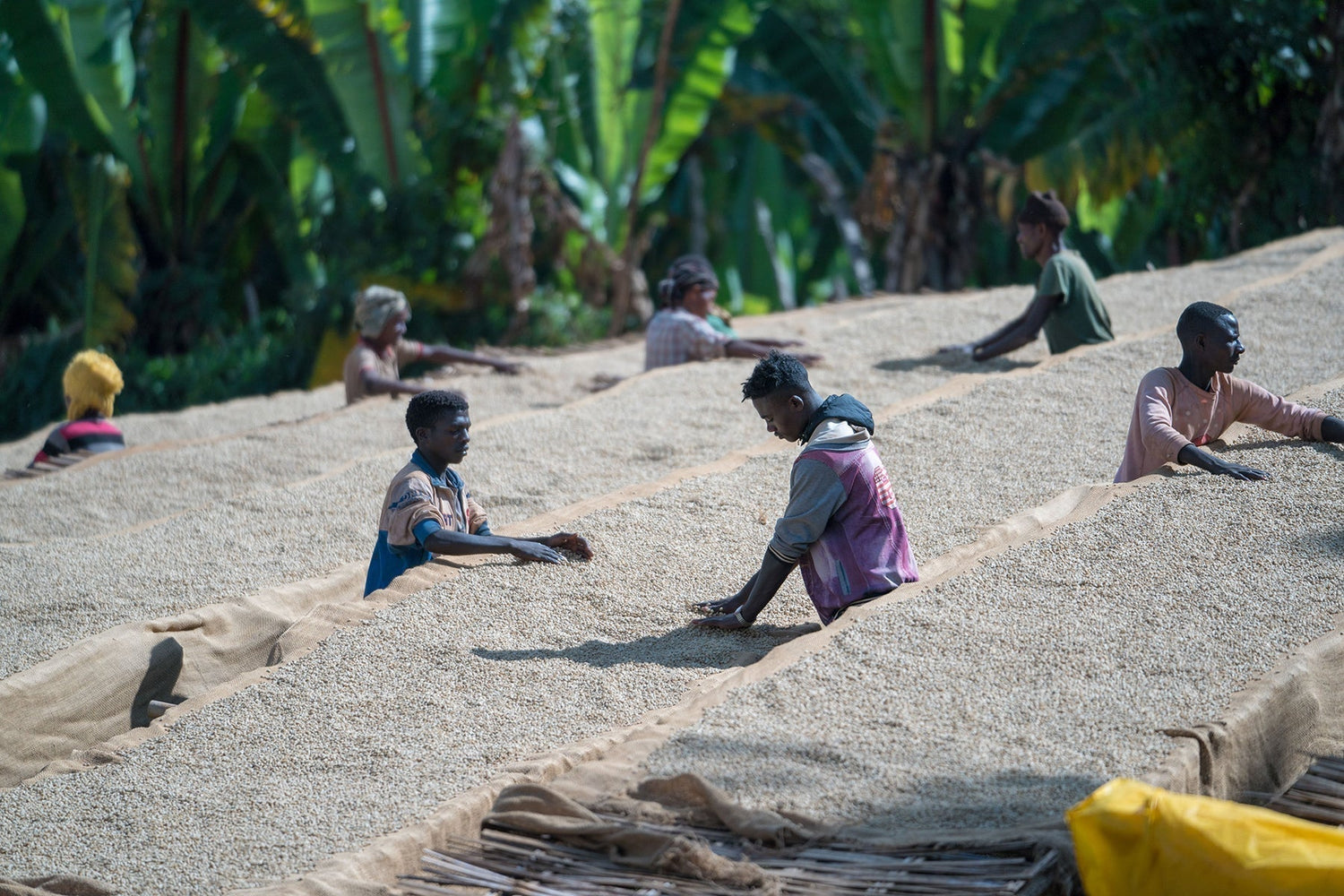Fair trade coffee and fair coffee prices are topics that concern us, especially in the 21st century. Fair payment for farmers is a matter close to our hearts at Wildkaffee Rösterei and that is exactly what this blog article is about.
We want to present to you exactly what our definition of a fair coffee price is and how it can be composed, or rather what influences can have on a (supposedly) fair coffee price. There are many aspects to consider, especially with regard to the routes that the coffee sometimes takes. Elias Fischbacher from the Wildkaffee Rösterei wishes you a lot of fun with the facts about the fair coffee price.
Fair coffee price - How are coffee prices composed?
To give you a closer look at the general pricing of coffee, let's first take a closer look at the topic . There are a few things to consider, especially with regard to the fair price of coffee.
Let's start with taxation! In Germany we pay 7% tax on roasted coffee, plus the coffee tax, which is €2.19 per kilogram . So if you can buy a kilo of coffee for €8-9 , you can be sure that this is not a fair price for coffee.
Of course, the current price of coffee always plays a big role. It is currently €4.80 per kilogram of coffee . The crux of the matter is that these prices do not really reflect the costs that farmers need to grow the coffee. Coffee is usually grown on small plantations and run by small farmers. Their existence has therefore been threatened for years by the low, unfair price of coffee.

Fair coffee price - How does coffee even get onto the market
Another big aspect is the many intermediate stages that coffee may go through. Let's go through this process step by step:
1. The coffee or cherries are grown on the plantation, which is run by a farmer.
2. After harvesting, the cherries are processed into green coffee in processing stations. The cherries are then sold to these stations.
3. After processing, the green coffee is filled into sacks and exported by ship all over the world. This step is probably the most expensive in the entire process, especially because of the rising prices in global freight transport.
4. Once it arrives in Europe, for example, the coffee is unloaded and stored in warehouses. From there, the coffee is delivered to processors such as roasters.
5. After roasting, the coffee goes to retailers and resellers.
With conventional coffee without a fair coffee price , only 5% remains with the farmers , which is of course far too little. The costs that the farmer has to cover for cultivation are not covered at all. This affects the working conditions in particular, and thus the employees and farmers, who are unable to develop their production further and have to live in poverty themselves. This is precisely why a fair coffee price is so important.

Fair coffee price promoted by Fairtrade?
Fairtrade itself is definitely a step towards a fair price for coffee, but it is not the solution. Simply put, Fairtrade guarantees a price per kilogram of coffee that is higher than the basic price for conventional coffee, but ultimately only ensures the existence of the coffee farmers. Investments in production are therefore not possible despite the higher price, and in terms of quality for the end consumer, better coffee is not guaranteed. You can find more information about the Fairtrade system here.
Fair coffee price through direct trade!
For us, direct trade is one of the best ways to guarantee a fair price for coffee. Direct trade with farmers is not always possible, because in countries where coffee cherries are grown in small quantities by private individuals or farmers with small areas, they are taken to the processing stations for further processing. In this case, the relationship is more likely to be with the owners of these washing stations or with the managers of cooperatives that the small farmers have joined.
In order to be able to inspect the work steps and understand the fair price of coffee, we regularly travel to the farmers and get our own impression of the processes, the atmosphere and where there is potential for improvement. We are also happy to lend a hand ourselves. This also helps us to experience and appreciate any difficulties in coffee cultivation.
It is not just the farmer who benefits from the fair coffee price when coffee is imported directly, but also the roaster! The producer knows exactly who he is working for and that he will be rewarded with a fair coffee price. Ultimately, this leads to improved quality and the improved quality to a higher price. A fair coffee price that is worthwhile for the farmer. This enables him to invest in better infrastructure and processes . This model also increases the reputation of neighboring farmers, who use it as a model. This increases the quality of life and goods in an entire region.

Fair coffee price - conclusion!
Especially today, the fair price of coffee plays a major role for coffee lovers. The working conditions in the countries of origin worry many people and awareness of better coffee quality , which is in line with the fair price of coffee, is constantly gaining in importance. Projects such as Fairtrade encourage this development, but do not per se ensure a fair price for coffee. For us, direct trade is the top priority when it comes to the fair price of coffee. Long-standing relationships with the farmers and regular trips to the plantations are important to us so that we can inspect the farmers' living and working conditions. The fair price of coffee and these relationships guarantee that we always get the best quality green coffee and sustainably improves conditions in the countries of origin . It is important that direct trade is taken seriously and that you work with the farmers on an equal footing. This creates a completely different relationship to the product coffee and the fair price of coffee. The fair price of coffee and direct trade also lead to greater awareness among buyers. If a product is explicitly fair and directly traded, what about all the others? How many steps are there between the manufacturer and the consumer?
In our online shop you will find specialty coffees that are traded directly and fairly. As already mentioned, fair coffee prices are one of our basic principles! Just click in!
By the way! In the shop and on the bag you can see in detail which farmer or cooperative your coffee comes from .


